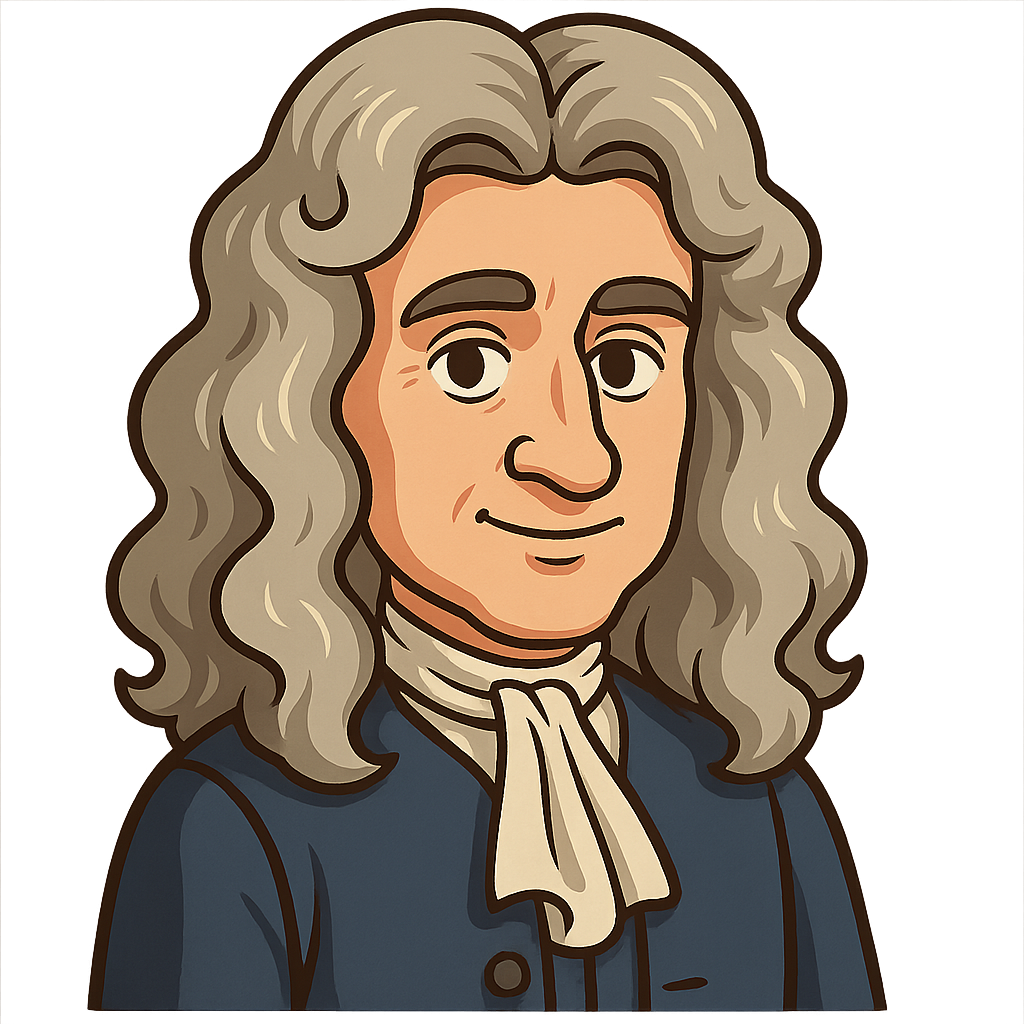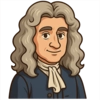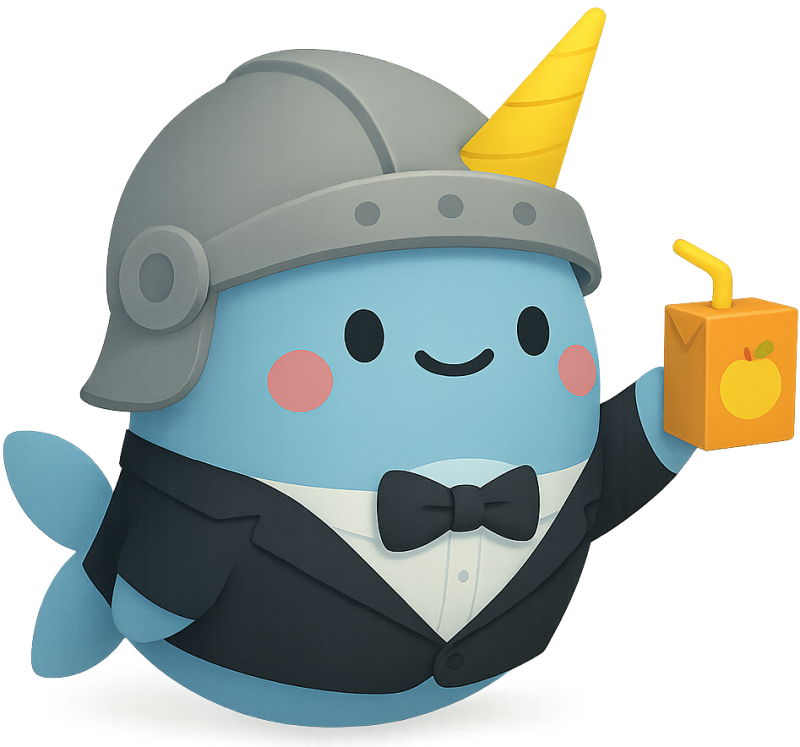Isaac Newton: The Boy Who Questioned Gravity
Hello there. My name is Isaac Newton, and I want to tell you a story about questions. I was born on a very cold Christmas Day in the year 1642, in a little English village called Woolsthorpe. My home was a farmhouse, surrounded by green fields and apple orchards. You might think a farm boy would love running outside and tending to the animals, but that wasn't me. I was a quiet, thoughtful child. My hands were much happier building things than they were pulling weeds. While other boys played games, I was busy creating my own little world of inventions. I spent hours carving wood and tinkering with gears. I built a tiny windmill that could actually grind little bits of flour. I even made a small cart that I could steer all by myself. My favorite creation was probably my water clock. I made it from a wooden box and carefully marked the hours inside. A steady drip, drip, drip of water told me the time. I loved understanding how things worked, from the gears in a clock to the wind that turned my windmill's sails. My mind was always buzzing with questions about the world around me.
My mother, Hannah, hoped I would grow up to be a farmer and take care of our land. She tried to teach me about crops and livestock, but my heart wasn't in it. My nose was always buried in a book, and my pockets were filled with tools and curious objects. I dreamed of learning more than our small village could teach me. I wanted to go to a university. It took some convincing, but my uncle saw the spark in my eyes and helped persuade my mother to let me go. So, in 1661, I packed my bags and traveled to the great University of Cambridge. It was the most exciting day of my life. The buildings were grand, and the libraries were filled with more books than I could ever have imagined. I studied mathematics, science, and the stars. For the first time, I felt like I truly belonged. But my new life was suddenly interrupted. In 1665, a terrible disease called the Great Plague spread across England. To keep everyone safe, the university had to close its doors, and I was sent back home to the farm.
I was disappointed to leave Cambridge, but that time back at the farm turned out to be the most important period of my life. I called it my 'year of wonders'. With nothing to do but think and observe, my mind was free to wander. One afternoon, I was sitting in the garden when I saw an apple fall from a tree. It didn't hit me on the head, as some stories say, but watching it fall straight to the ground sparked a giant question in my mind. Why did the apple fall down? Why not sideways, or even up? I realized there must be some invisible force pulling it toward the center of the Earth. I called this force 'gravity'. Then I had an even bigger thought. If gravity can pull an apple from a tree, could that same force reach all the way to the moon? Could gravity be the force that keeps the moon from flying off into space? It was a huge idea that connected the smallest apple to the vastness of the cosmos. During that same year, I also became fascinated with light. I made my room completely dark, except for one tiny hole in the window shutter that let in a single beam of sunlight. When I placed a glass prism in the path of the beam, a stunning rainbow of colors appeared on my wall. I had discovered that pure white sunlight is not white at all. It is actually a mixture of all the colors you see in a rainbow.
When the plague finally ended, I returned to Cambridge with my head full of new ideas. I became a professor and spent years working on my theories. With the encouragement of my friend, Edmond Halley, I wrote down all of my discoveries about gravity and motion in a very important book. It was published in 1687 and was called the 'Principia Mathematica'. In it, I explained my three laws of motion and my law of universal gravitation, which described how every object in the universe pulls on every other object. These ideas helped explain everything from a falling apple to the orbits of the planets. I also wanted to see the stars and planets more clearly, so I invented a new kind of telescope called a reflecting telescope. It used mirrors instead of just glass lenses, which made the images much sharper. I lived a long life full of questions and discoveries, and my journey finally ended in 1727. Looking back, I see that my entire life was about asking 'why?'. That simple question is the key to unlocking the secrets of the universe. So I hope you, too, will always stay curious and never stop wondering.
Reading Comprehension Questions
Click to see answer



